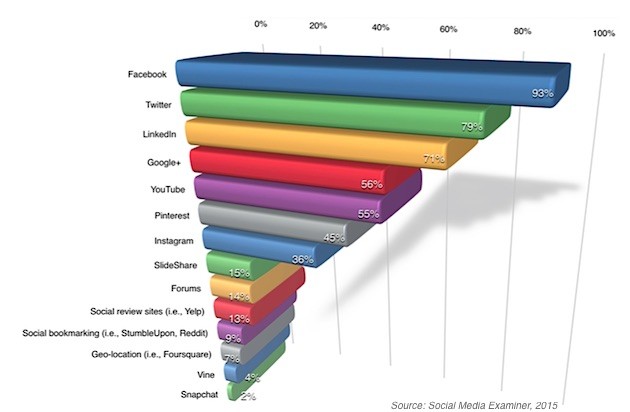The internet is full of appointment-scheduling software providers. Search results will show you thousands upon thousands of Web sites, documents and posts relating to scheduling software. And with good reason: Appointment scheduling is a crucial function at most businesses and organizations. These groups utilize such services not only for appointments, but for tracking their clientele, sending reminders and allowing customers to pay online. Taking appointments in the more traditional manner-a receptionist, a pen and an appointment book-has become obsolete, and more and more individuals are turning to online functionality to improve their office procedures.
Software developers are attentive to this growing need and have taken steps to capitalize on it. However, not all appointment software is created equal, and it’s vital that businesses and professionals thoroughly research and test all aspects of a particular program and provider before choosing it as their appointment-scheduling solution.
WHO PROVIDES IT?
Numerous software as a service (SaaS) providers currently offer appointment-scheduling programs to an ever-increasing number of industries, from massage therapists to shipping companies. Some, like Bookafy, provide service to a wide range of industries, while others have found their niche in more specific industries, such as personal training and spas.
Given its universal appeal, some companies that provide a wide assortment of programs and services also offer appointment-scheduling or similar software. These can be in the form of Web-based calendars, modified e-mail functionality (such as personal calendars) and custom-created scheduling options for a Web site. Some aren’t even true appointment-scheduling applications; they’re just marketed that way.
WHAT TO LOOK FOR
Although many SaaS companies offer the standard functionality found in most appointment-scheduling software programs, additional capabilities, services and support can greatly vary. Therefore, it’s imperative that consumers conduct extensive research and manually test the functionality of the system before choosing it as their appointment scheduler. Don’t assume that a certain function or option is available; make sure you know what the service offers and its limitations before purchasing it. Many providers offer a free trial of their product, which you should take advantage of to see if it’s right for you and your business.
Depending on operative needs, businesses and organizations should consider the following when deciding on an appointment-scheduling provider:
• Reliability. This is an important factor to consider, and signing up for a free trial of the product can help you determine if the service consistently experience any interruptions of service, glitches, recurring errors and bugs. The ability to access and properly utilize the service at any time is crucial for your business operations. Make sure the product is proven before incorporating it.
• Ease-of-use for staff and clientele. This is a must for any software program. If it’s difficult for your staff and clients, customers, students and patients to use, they won’t utilize it, which defeats the whole purpose of implementing scheduling software at your business or organization. Make sure the program you choose doesn’t require users to be computer experts.
• Accessibility. Is the software Web-based? If not, your staff and clientele won’t be able to easily access it from any location. In fact, your clientele may not be able to access it at all, which creates a major dilemma if you want to offer self-scheduling where the client, customer, student or patient makes his or her own appointment. Additionally, your staff may not be able to access it either, especially if the program is installed on only one computer terminal. Almost every service is now available online. Your appointment scheduling software should be no exception.
• Installation. Does the software require you to download or manually install components on your computer in order to use it? In our age of “cloud computing,” where online databases securely store our valuable information, manually installing software on your computer should not be a requirement. It’s much easier and quicker to access your appointment scheduler and client information online. The only requirement should be an Internet connection.
• Capabilities. These can vary from business to business, but these capabilities should be standard in the software you choose:
o Calendar Adjustability. The ability to easily set multiple appointments per time slot, block off days and times, set future appointments up to a year out or longer, and determine the status of a scheduled appointment-such as “completed,” “rescheduled” or “canceled”-is important. A free trial run will reveal if these exist and how they work.
o Automated E-mail and Text Reminders. Clients appreciate the reminders, and they also reduce the “no-show” rate.
o Packages. Some industries offer “packages” as part of their services, such as a personal trainer who offers a 12-lesson fitness package. Some appointment-scheduling companies offer this beneficial feature.
o Point-of-Sale Capability. Businesses and organizations are not only taking appointments by phone, but also allowing clients, customers, patients and students to securely pay online.
o Accurate and Robust Recordkeeping. Most businesses and organizations rely on accurate recordkeeping of their appointments and clients. The way software programs generate reports varies, so make sure you test this function to see if will be acceptable to your operations.
You should also consider future activities and services as well. Just because you currently don’t have a need for a specific feature doesn’t necessarily mean you won’t in the future.
• Security. Will your client, patient, customer or student information be safe? Although almost every Web site ensures the utmost security, look into the site’s credentials and safety features. Not only will it store client contact information, but possibly credit card information, especially if your business will offer point-of-sale transactions through the appointment page.
• Customer Support. Have you every purchased a product or service with high expectations, only to be left in the dark on how to use it because of poor or no customer service? Accurate appointment-setting is something that cannot be taken lightly, and neither should proper customer service. Make sure the software provider you chose offers exceptional customer service, not just during the initial set-up of your software, but throughout its usage. You should also check to see if the provider offers this service by phone, e-mail or both. Some companies offer different levels of customer support, which may be worth the extra fee, depending on the administrator’s technical knowledge and complexity of your tailored program.
• Service Contracts. Don’t get trapped in a long-term contract if you can help it. Some appointment-scheduling software providers offer month-to-month service without any long-term contracts. Additionally, some give clients an additional month or two of free service if they pay by the year instead of the month. A month-to-month plan can give you a greater piece of mind and more flexibility if the software doesn’t meet expectations.
The bottom-line when selecting appointment-scheduling software is simple: Do your homework. Although the software may appear to be reliable and offer all the functionality you seek, looks can be deceiving. Sign up for a free trial, if offered, and test all of the functionality you would routinely use. Have your staff members set appointments as if they were your clients. Learn as much as you can about the product before making a decision. It could mean the difference between a dependable, easy-to-use program and one that creates headaches for you, your staff and your customers, clients or patients.


